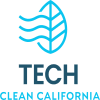The lawmaker sponsoring a major solar bill in North Carolina came to the House three years ago as an opponent of renewables.
Now, he and his supporters say they have enough support for a major pro-solar bill from the business community and voters that they can get it through the legislature with or without the support of Duke Energy.
“When I was elected in 2012, I was an opponent of solar,” recalled the originating sponsor of The Energy Freedom Act (H.B. 245), Republican Representative John Szoka.
But, his career in the military had taught him to be “a numbers and facts guy,” he explained.
“I was convinced by the numbers and the facts that my position on solar was based on emotion and not on facts, so I changed my position," he said.
Szoka's bill, H.B. 245, would allow third party solar financing and solar leasing in the state. While current law requires all third party energy companies to sell any output to the utility, which then passes it on to customers, the "Energy Freedom Act," as it's called, would allow third parties to sell power directly to consumers.
As long as a facility does not generate over 125% of the consumer's annual energy use, any company in North Carolina could build an "electric generating facility" on a utility customer's property and let that customer use or buy the electricity without the provider being defined or regulated as a utility.
The owner of the facility would have to register at a cost of $25 with the North Carolina Utilities Commission (NCUC). The generation would be eligible for net energy metering (NEM), but the NCUC can alter the “fees and credits” after “an investigation of the costs and benefits of customer-sited generation.”
If the bill passes, it could significantly boost solar in an economy where it's already getting a foothold.
In 2014, third party ownership accounted for over 70% of all U.S. residential solar installations, ranging from 90% in New Jersey to 65% in California, according Shayle Kann, lead author of the GTM Research 2014 U.S. Solar Market Insight Report.
The evolution of H.B. 245
Szoka originally intended the bill to only extend third party sales to military and government institutions, he said. A conversation with Kathyrn Wiseman, a public affairs official for Walmart, changed his mind.
Wherever third party ownership is available, she told him, Walmart is putting solar on their buildings or installing wind turbines.
After further talks with other business leaders, Szoka explained, “I decided that if it is good for the military and good for government, why wouldn’t it be good for the business community and for regular consumers like you and I?”
What Duke wants
One major roadblock for Szoka's bill could be Duke Energy, which says it wants to hash out a bill that covers reforms of the entire solar industry, not just third party sales and financing.
“We believe a comprehensive approach is the best way to make progress on solar in North Carolina,” said Duke Energy Communications Manager Randy Wheeless. “What we did in South Carolina worked out well. There was give and take. Not everybody was 100% happy but at the end of the day we had a framework for how we would do things going forward. And there was not a big fight.”
Duke wants to “get the right stakeholders at the table and craft out something comprehensive that will avoid these one-off fights over individual issues,” Wheeless explained. “We don’t want North Carolina to turn into the kind of state that argues over these things constantly and never gets anything done.”
The North Carolina Sustainable Energy Association (NCSEA) would be a good choice to participate in such a working group because they represent solar advocates, Wheeless said.
“We would be in favor of a group that mirrored the cross-section of important stakeholders in the renewable energy space that we worked successfully with in South Carolina, including developers, environmental organizations, and business leaders,” he told Utility Dive.
“We don’t want to discredit what is happening in South Carolina," responded NCSEA Communications Director Allison Eckley, "but they are at a much different stage of solar development than North Carolina.”
While South Carolina is just beginning to build a solar capacity, North Carolina’s cumulative installed capacity from 2012 to 2014 was second in the nation, she noted.
“To try to replicate what they did in South Carolina would be to discredit North Carolina’s progress and ignore what is now possible," Eckley said.
NCSEA always welcomes the opportunity to engage in collaborative discussions with stakeholders, including Duke Energy, Eckley acknowledged. But, “tabling actions like the third-party sales bill in favor of a working group or study will only delay progress. There's simply no reason to remain one of just five states in the nation to ban this common-sense, free market business model that will benefit all North Carolina ratepayers.”
The North Carolina Investment Tax Credit
The state also can’t afford to wait on a discussion about the 35% personal tax credit for renewable energy investment which expires at the end of 2015, Eckley said. It is another issue Wheeless said Duke would like to take up in a comprehensive approach to solar.
If Duke was serious about rooftop solar, they would have called for this working group several years ago, said Attorney John Runkle of NC WARN, an environmental advocacy group that has long pressured Duke on sustainability issues. “I’m not sure sitting down with Duke and discussing the tax credit now is any more than just a delay in dealing with it.”
Both Eckley and Runkle said they expected legislation this year to extend the tax credits. Senator Paul Lowe brought Senate Bill 329 to do so the same week Representative Szoka re-introduced his bill to the House. If the tax credit is axed, or the issue is not resolved before it expires, it could mean a tougher business climate for renewable energy developers of all stripes in the state.

The coming political battle
Despite its legislative preferences, it now seems clear Duke is going to get exactly the kind of one-off political uproars it doesn’t want.
“We are confident of support for both the third party bill and the tax credits extension but both are still very much a fight,” Eckley said. “It is going to definitely be a long session.”
Duke approached Szoka about changing the bill to a call for a legislative study on third party ownership but that, he said, “is just another way to kick the can down the road.”
Szoka saw two options, he said.
One was to “use the legislative body to set policy and then figure out how to execute it,” he explained. The other was to “study it and come to a grand agreement on the issues and from that decide what the policy is.”
“In the last session, there were over 100 legislative study bills passed in the House but only 10 or 11 ended up being studied,” Szoka said. “I don’t know what Duke’s intentions are. You have to ask them. I don’t like to gamble on a 10% chance. I think Duke is dealing fairly with me but they have their objectives and I have mine.”
Usually, bucking a powerful utility's opinion would spell disaster for energy legislation in the state legislature, but renewable advocates say this time it's different.
“If the third party sales bill fails it would be “a huge opportunity missed,” Eckley said. But she does not expect that to happen.
Despite Duke’s opposition, “there is a grassroots movement that is growing by the day behind this,” she said. “Recent polling commissioned by Conservatives for Clean Energy showed 77.3% of Republicans, 78.8% of Democrats, and 83.3% of unaffiliated voters think lawmakers should pass legislation allowing third party energy sales.”

Duke Energy Carolinas, Dominion North Carolina Power, and other utilities seem to be the only ones standing in the way, Eckely said. “Corporations, including Walmart, Lowes, Family Dollar, and Target, signed a letter of public support of the bill.”
It appears the social conservative movement in the state is behind the measure as well.
"North Carolina families, schools, churches and businesses should have access to the best energy options that the market has to offer,” said North Carolina Christian Coalition Chair Ash Mason. “It's time to remove outdated and unnecessary barriers in order to enable North Carolinians to invest in solar technology on their property."
But at least for now, Duke is sticking to its guns.
“Some might say a comprehensive approach will take too long but at the end of the day, you have a collaborative solution that everyone has agreed to,” Wheeless insisted.
Duke does not support the Szoka bill but, he said, “in South Carolina we came out with third party leasing so it is not impossible. When you get together and hash out a lot of issues, there may be issues that mean more to us than this issue so maybe we could give and take.”
The bigger questions are, he said, “Why fight on these one-off issues? Why don’t we get all the issues together and come up with a more collective issue?”
What they agree on: Net energy metering
“Net metering is an issue that could be handled through the kind of working group Duke wants,” Eckley said. “Given what net metering is, there is only so much a non-utility can do about it without having the utility at the table.”
The Szoka bill’s provision requiring a study of solar costs and benefits could move the state toward a net energy metering debate. Though NCSEA already has such studies, it also welcomes data, according to Eckley.
“If we don’t have numbers, we are idealists,” she said.
“The question of doing a value of solar study could be on the table,” Wheeless said. “It is more about how to deal with net metering. Is it fine the way it is? Is it something that needs to be changed? That is what comes out of a comprehensive discussion.”
Editor's Note: This post was updated to reflect a clarification in comments from Duke Energy spokesperson Randy Wheeless. The utility thinks the North Carolina Sustainable Energy Association would be a valuable participant in a solar legislation working group, but not necessarily that the Association should lead the group, as the post originally stated. Wheeless also clarified that NCSEA represents solar advocates, instead of rooftop solar advocates.





















